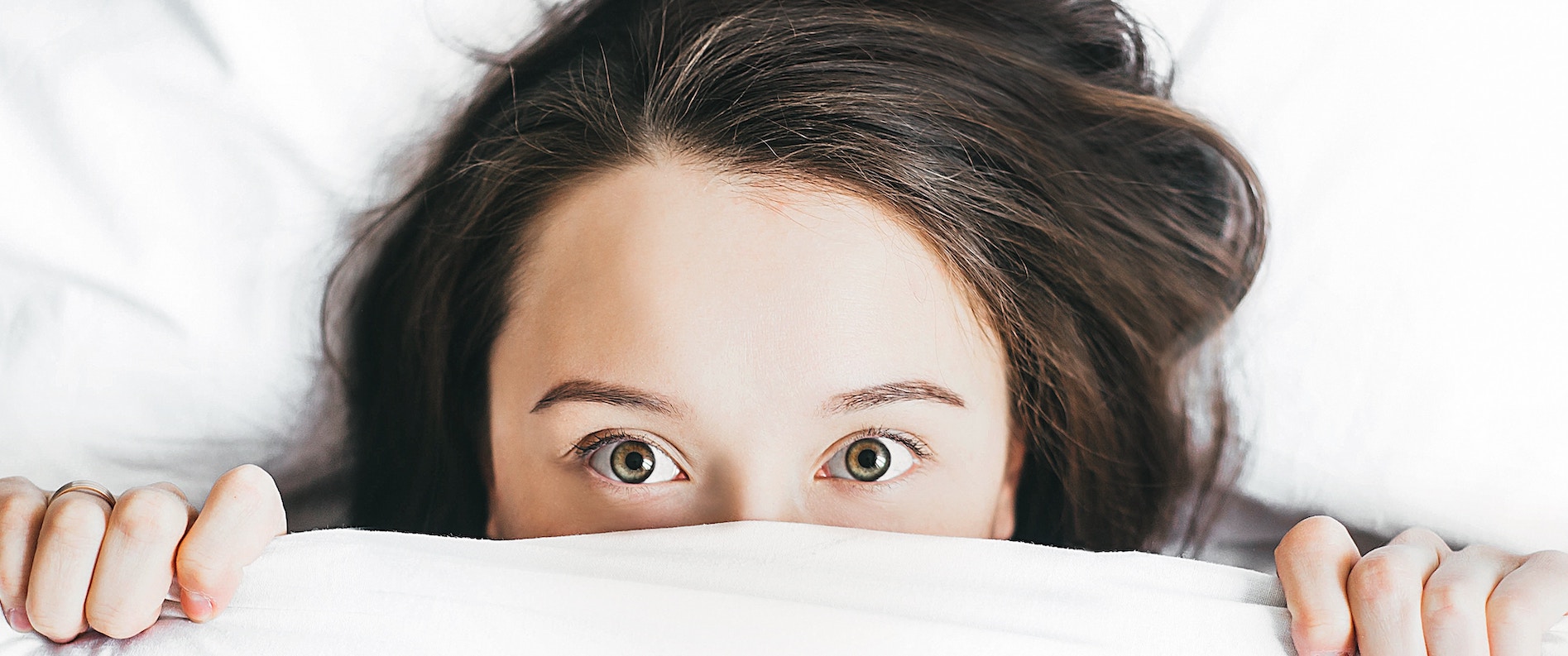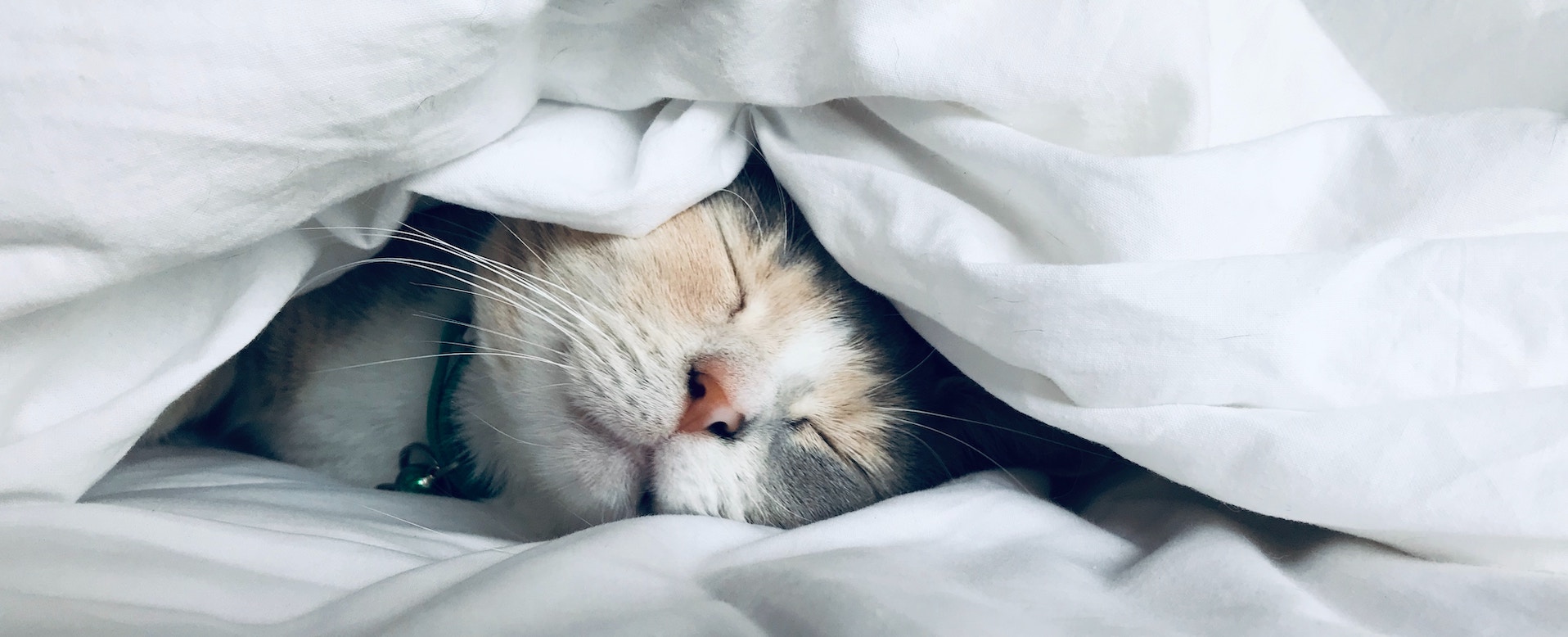General Health
Are you getting the sleep you need?
Who doesn’t love a good night’s rest? Or a good nap? You wonder how a toddler can detest sleep when, as adults, that’s all we really want. Getting enough sleep helps you feel energized, refreshed, and overall in a better mood. Inadequate sleep makes you feel cranky and groggy. In our busy society, we don’t take rest as seriously as we should. Why should we care more about our sleep?
Benefits of Good Sleep
1- Sleep reduces stress
Did you know that when you are sleep deficient, your body releases stress hormones? We understand that stress can cause bad sleep. But it can go the other way too. Your body goes into a state of stress, making it even harder to fall asleep. . This added stress can worsen anxiety and the stress you feel day-to-day. Most adults actually need 7-9 hours of sleep. So if you are working late or staying up to watch Netflix and then waking up early the next morning, you probably aren’t getting enough sleep. Causing you unnecessary stress. Deep sleep gives your mind a break from stress while interrupted sleep increases your stress levels.
2- Sleep can improve your mental health
A lack of sleep can increase anxiety, depression, irritability, and overall moodiness. Sleep has an affect, good or bad, on the chemicals in your body. Poor sleep affects the release of serotonin. A deficiency in serotonin is often linked to depression. Poor sleep only compounds existing mental health concerns. One of the best things you can do for your mental health is get some deep sleep! Being in bed for 7-9 hours is different than sleeping soundly for 7-9 hours.
3- Sleeps helps your memory
Having trouble remembering things? Poor sleep may be the cause! Not much is understood about dreams but dreams are thought to be a way your brain processes your memories. While you sleep, your brain works to process the day’s activities into memories. The deeper you sleep, the more connections your brain makes. And the better your memory becomes.
4- Sleep gives your body a chance to refresh
Even if you don’t get injured, your body needs to repair itself at the end of the day. You are exposed to a lot during the day—stress, sickness, day-to-day pains, constant screen-time, overeating, undereating, and more. Your body needs time to refresh. Without a deep sleep, your body doesn’t get that restart. While you sleep, your body builds necessary protein needed to repair any cell damage that happens during the day. Sleep is key to this process!
5- Sleep improves your focus
This one seems like a no-brainer. The better asleep, the more you achieve. When you wake up feeling energized and refreshed, you can get more done. Instead of dragging throughout the day. With each good night’s sleep, your energy increases. As your energy increases, you stay more active during the day. And the more active and alert you are during the day, the more likely you are to get another good night of sleep.
6- Sleep reduces inflammation
What is inflammation? It is not always a negative thing. Inflammation is a necessary reaction that helps fight off sickness. Some of the symptoms include fever, chills, stiffness, and fatigue. These symptoms are a sign that your body is working hard to fight illness. Inflammation becomes a problems when it happens at the wrong time or too often. The right amount of sleep can help keep your inflammatory responses in check—while too little (even too much) sleep can throw it out of whack.

Downfalls of Inadequate Sleep
If we truly understand the risk associated with lack of sleep, we would do more to get rest. Sleep deprivation has been linked with an increased risk of serious health issues. Here are just a few examples.
1- Obesity
A good night’s sleep helps regulate your metabolism. Receiving less that six hours of sleep has been linked to weight gain. According to Healthy Sleep from Harvard Medical,
During sleep, our bodies secrete hormones that help to control appetite, energy metabolism, and glucose processing. Obtaining too little sleep upsets the balance of these and other hormones. For example, poor sleep leads to an increase in the production of cortisol, often referred to as the “stress hormone.” Poor sleep is also associated with increases in the secretion of insulin following a meal. Insulin is a hormone that regulates glucose processing and promotes fat storage; higher levels of insulin are associated with weight gain, a risk factor for diabetes.
Lack of sleep can intensify cravings, especially for sweets. Deprivation can also decrease desire to exercise and increase overeating.
2- Diabetes
Poor sleep can have a negative impact on the way your body processes glucose. As such, sleep deprivation can potentially lead to Type II diabetes. If you sleep less than five hours per night, your risk for diabetes significantly increases. According to the National Sleep Foundation,
In addition, getting too little sleep can increase your appetite and reduce your level of satiety, causing you to crave carbohydrates and sugary foods, in particular. Over time, indulging in these cravings or overeating, in general, can wreak havoc on your insulin and blood sugar levels, as well as your body weight…Plus, when you’re short on sleep, you’re more likely to feel tired and less inclined to exercise, which is a problem because regular exercise helps with weight management and blood sugar control.
3- Heart Disease and High Blood Pressure
Did you know that if you already have high blood pressure/hypertension, just one night of bad sleep can elevate your blood pressure the next day. Taking it one step further, poor sleep has also been linked to heart disease and stroke due to the elevation in blood pressure.
You might be thinking to yourself “I’m young” or “I’m not overweight” or “I’m active. I don’t have to worry about heart disease”. Unfortunately, if you don’t get enough sleep, your risk increases—even if you are all those things. Researchers are not completely certain why there is link between sleep and heart disease but the link exists. Which could explain why those with sleep apnea often have poorer heart health.
Tips for Getting Better Sleep
A good night’s sleep is a critical part of good health. Just like eating healthy and exercising. Don’t panic. Even if you sleep poorly now, that doesn’t mean you always will. There are things you can do obtain better sleep habits.
Let in the light! (the good kind)
Your body runs on a clock known as your circadian rhythm. It tells your body when to stay awake and when to sleep. Bright light helps keeps this rhythm in sync. In a study done on people with insomnia, exposure to bright daytime light decreased the time it took to fall asleep by 83%.

Try to get some natural sunlight during the day. If this isn’t doable, make sure you have bright bulbs in your home.
Not all light is good, however! You don’t want to have too much light when you are preparing for bed. The main source of light to reduce at nighttime is blue light—the light emitted from our screens. Some ways you can reduce blue light is to wear glasses that block blue light or stop using your screens two hours before bed.
Cut the late-day caffeine
Coffee, Diet Coke, whatever it may be. If you drink it too close to your bedtime. Caffeine wakes up your senses and makes it hard to relax and get to sleep. Did you know that caffeine can remain in your system for up to 8 hours? Stick with decaffeinated options in the late afternoon to avoid sleep struggle.
Keep a consistent sleep schedule
Your circadian rhythm helps align your body with the sunrise and sunset. Waking up and going to bed at a consistent time will help you get more quality sleep. You can get on a more consistent schedule by setting an alarm. If you use an alarm for long enough, you might not need one anymore. Your body’s clock will wake you up! You can also try to keep your schedule consistent through the weekend.
Make your bedroom a haven
Keep your room clean. Set it to the temperature you like. Use a diffuser or your favorite candle. Find a nice pair of sheets. Choose a pillow that fits your needs. It is easier to fall asleep, and stay asleep, if your surroundings help you relax. Get a nice mattress that is comfortable to you. Make your bedroom a place you want to be—a place you can fall asleep in!
Try a supplement
Melatonin is a hormone that helps regulate your sleep cycle. Taking melatonin can help you fall asleep if you have trouble doing so. According to Healthline, “In one study, 2 mg of melatonin before bed improved sleep quality and energy the next day and helped people fall asleep faster. In another study, half of the group fell asleep faster and had a 15% improvement in sleep quality”.
You can also try using lavender by using lavender-scented lotion, a diffuser, or a lavender spray.
Take a warm bath
What could be more relaxing? Draw yourself a bath with warm water and relax. Even better, use lavender-scented soap or bubbles to help set your mind to sleep mode.
The key to falling asleep is RELAXING. Easier said than done, right? But, you can do some things to help you relax. Take a warm bath, listen to quiet music or a podcast, read a book, play sudoku, write in your journal, stretch, or meditate.
Talk to your doctor
If you feel like you have tried absolutely everything, speak with your doctor. You will want to rule out a sleep disorder, such as sleep apnea. Your doctor can help find the root of your sleep problems.



Less sleep could cause you stress and a lot of problems.